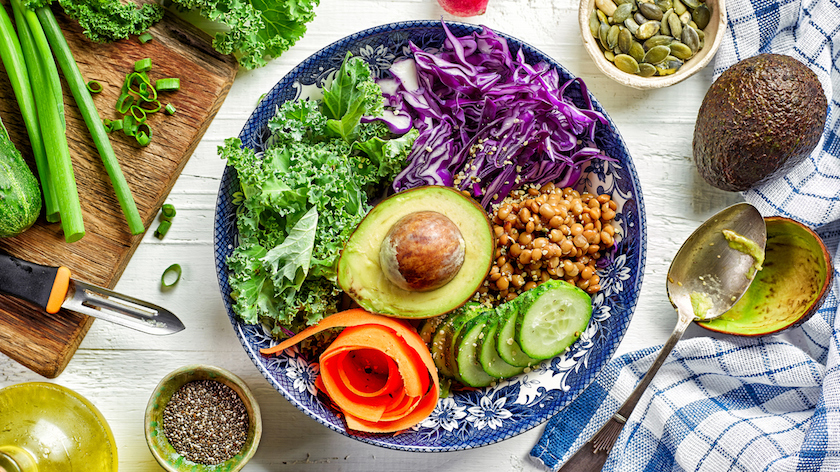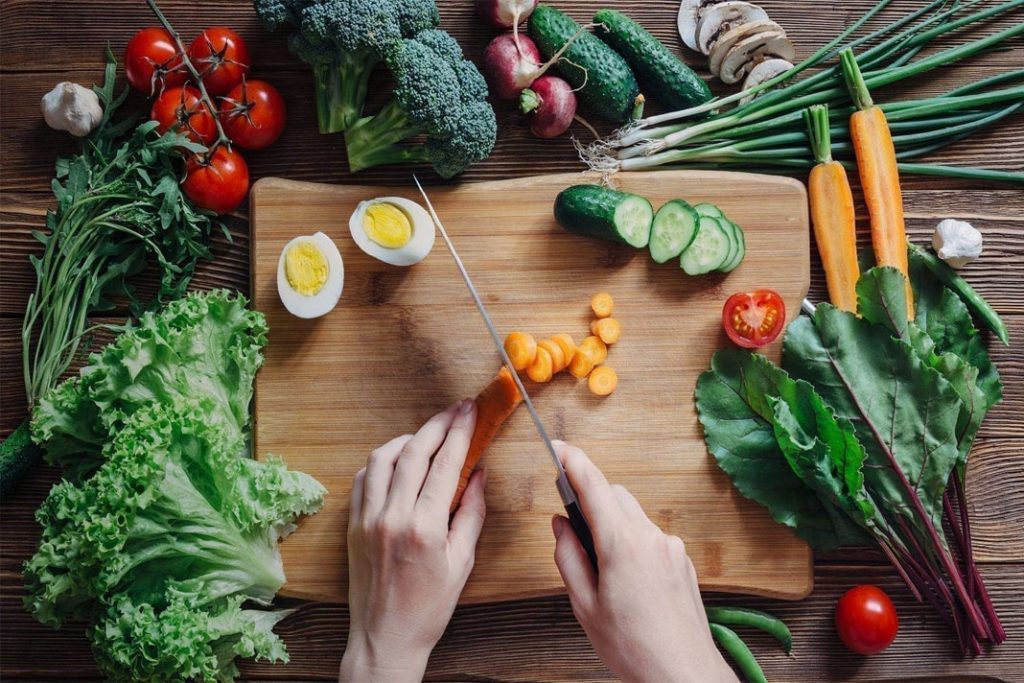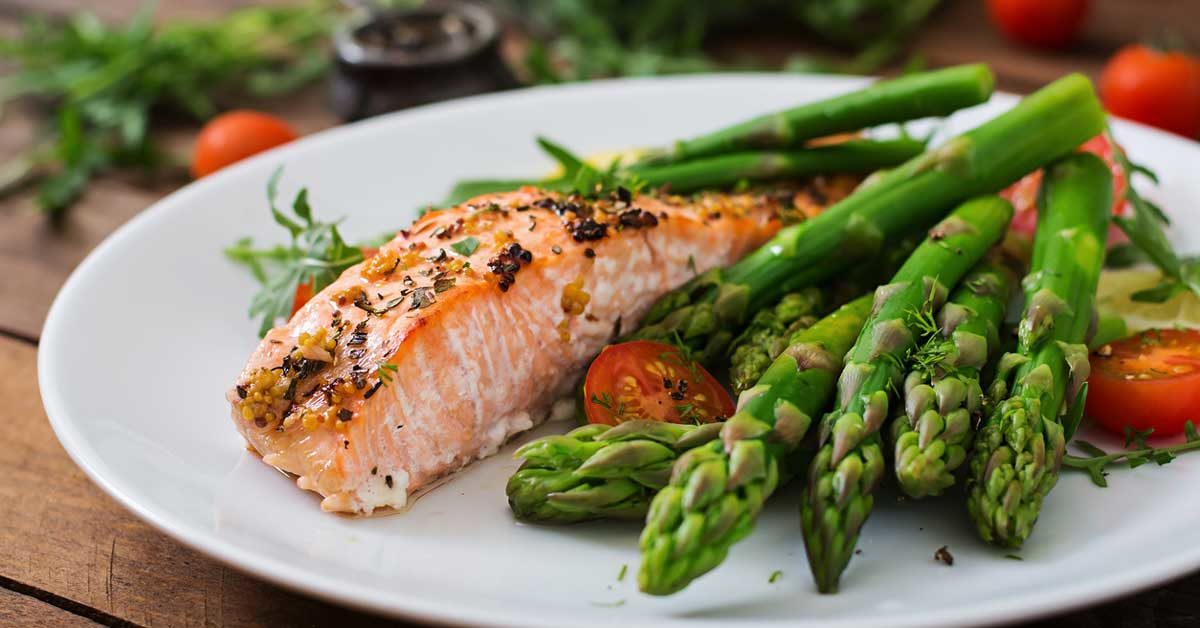Overview
Prostate cancer rates are on the rise, but by adding some healthy, prostate-friendly foods to your diet, you may be able to reduce your risk.
According to the American Cancer Society, prostate cancer is the most common cancer among men, affecting 1 in 7 men in the United States. It’s believed that the high-fat, high-sugar Western diet may contribute to increased rates of prostate cancer. You’ll still need to see your doctor for regular prostate cancer screenings, but you can start boosting your prostate health by trying these six foods.
1. Tomatoes
Tomatoes contain a powerful antioxidant called lycopene. It may help prevent prostate cancer as well as reduce tumor growth among men with prostate cancer. Further research is needed to confirm a benefit, but in one review of 11 studies, researchers found a trend suggesting that men who ate more tomatoes and tomato-based products, both raw and cooked, may be less likely to develop prostate cancer.
How exactly do tomatoes help? Lycopene may decrease cell damage and slow cancer cell production. But because lycopene is tightly bound to cell walls, our bodies have a difficult time extracting it from raw tomatoes. Cooked or pureed tomato products may be better options. Look to products like these:
- tomato paste
- spaghetti sauce
- sun-dried tomatoes
- tomato juice
- ketchup
How to add more tomatoes to your diet
Eating Italian-style foods, like pizza and pasta, may help you incorporate more tomato-based foods into your diet. Focus on Italian-style foods that use a tomato base, like spaghetti Bolognese or a caprese salad.
In the summer months, you can buy fresh, local tomatoes to slice atop sandwiches and chop into salads. Drinking plain tomato juice each morning is another good option, just make sure to pick a low-sodium variety.
Learn more: 11 red vegetables with health benefits »
2. Broccoli
Broccoli is a vegetable that contains many complex compounds that may help protect some people from cancer. Some studies suggest there’s a link between the amount of cruciferous vegetables you eat and your prostate cancer risk. The reasons why are still unclear, but researchers propose that one of the phytochemicals found in these vegetables, called sulforaphane, selectively targets and kills cancer cells while leaving normal prostate cells healthy and unaffected.
How to add more broccoli to your diet
You can put broccoli in stir-fries, soups, and salads, or you can just eat it on its own with some dip. If you worry about fresh vegetables going bad, consider buying frozen broccoli that you can cook whenever you have the time.
3. Green tea
Green tea is a beverage that has been consumed for thousands of years. It has traditionally been a large part of peoples’ diets in Asian countries. It’s not clear if green tea is the reason why prostate cancer rates in AsiaTrusted Source are so much lower than in the United States. However, components of green tea are being studied for their effects on health.
These include:
- catechin
- xanthine derivatives
- epigallocatechin-3-gallate (EGCG)
- epicatechin
There’s now some evidence to support that these compounds found in green tea may prevent the development of prostate cancer. In a review published by Chinese Medicine, researchers found a decreased risk of prostate cancer among men who consumed more than five cups of green tea per day.
How to add more green tea to your diet
Start by drinking a cup each morning in place of your regular coffee. If you don’t drink caffeine, try a decaffeinated version, and if you don’t like warm tea, try cooling it in your refrigerator and adding ice for a cool and refreshing beverage. You can also use cooled tea as the liquid in your homemade smoothies.
4. Legumes and soybeans
Legumes, such as beans, peanuts, and lentils, contain biologically active plant compounds known as phytoestrogens. Isoflavones are one such phytoestrogen. They may contain cancer-fighting properties. This could suppress tumor growth in prostate cancer cells.
While there’s still a need for more conclusive research, the preliminary research reported by the National Cancer InstituteTrusted Source shows a link between the consumption of soy and reduced levels of prostate-specific antigen (PSA). PSA is a protein produced by your prostate. The PSA test measures the level of PSA in your blood and is used as a screening test for prostate cancer. This research also seemed to indicate soy was more effective when it was eaten in combination with other cancer-fighting foods.
How to add more legumes and soybeans to your diet
To add more legumes and soybeans to your diet, consider eating a vegetarian diet for one day each week. Some people try what is called a Meatless Monday. This way, you can replace meat with the protein from beans.
Try making a black bean burger with lots of veggies. Or you can dip pretzels in a homemade hummus made with chickpeas. Tofu is a tasty source of soy that you can bake or brown on your stove and flavor with sauces.
5. Pomegranate juice
Much like red wine or green tea, pomegranate is a rich source of antioxidants. It’s been touted as a “miracle fruit” in preventing chronic diseases related to oxidative stress. Scientists think the antioxidant found in pomegranate works in a “seek and destroy” method, exclusively targeting the prostate cancer cells and not the healthy cells. StudiesTrusted Source have found evidence that pomegranate juice and extract hinder the production of different prostate cancer cells, though more research is needed.
How to add more pomegranate juice to your diet
You can buy pomegranate juice at most grocery stores. If drinking it plain is too intense for you, consider diluting it with plain water or adding some sparkling water. You can also add it to homemade salad dressing to sweeten up your favorite salad.
6. Fish
Polyunsaturated fats, like omega-3s and omega-6s, are essential fatty acids found exclusively in the diet. They’re not synthesized by the body. The traditional Western diet has a lot of omega-6 fatty acids but not many omega-3s. Having a healthier balance of omega-3 and omega-6 fatty acids may help prevent the development and progression of prostate cancer.
In a review published in the American Journal of Clinical Nutrition, researchers found a link between eating fish and a reduced mortality rate from prostate cancer. Try eating fatty fish found in cold waters to increase your omega-3 intake. These include:
- salmon
- herring
- mackerel
- sardines
- trout
How to add more fish to your diet
Adding more omega-3s to your diet can be as easy as cracking a can of sardines or tuna and chowing down. Not everyone is so enthusiastic about fish, though. It can also be expensive.
If you haven’t enjoyed fish in the past, try a different type of fish. Each fish has a unique flavor. The flavor is also milder if the fish is fresh, so your taste buds may enjoy fish more if you buy it from a fish counter and make it that day.
Cod, flounder, and trout have milder flavors. Try topping your fish with a lemon sauce, or for an extra boost to your prostate, try baked cod in a tomato sauce.
To stretch your dollar, you can also add fish to a hearty dish, like pasta, soup, salad, or sandwiches. That way you won’t need as much fish to make a complete meal.
You can also ask your doctor about taking fish oil supplements.
Outlook
While more research needs to be done in the area of diet and prostate cancer, there is evidence to suggest that certain foods may help reduce your risk for the disease. It’s a good idea to check in with your doctor before making changes to your diet, especially if you’re receiving treatment for prostate cancer, as certain foods may interact with different drugs and therapies. For example, some supplements that are high in antioxidants (e.g., pomegranate extract) may counteract the effects of radiation therapy. Therefore, you should avoid supplements with high levels of antioxidants during radiation treatment. That said, most of the items on this list are whole foods. Eating them is part of a healthy lifestyle and, at very least, may help you feel your best.





